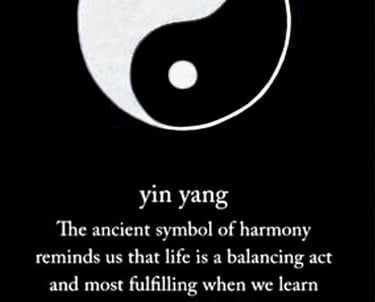Traditional Chinese Medicine
Traditional Chinese Medicine (TCM) is a holistic system of medicine that has been practiced for thousands of years in China and other parts of Asia. It encompasses various therapeutic modalities, including acupuncture, herbal medicine, dietary therapy, massage (such as Tui Na), and mind-body practices (such as Tai Chi and Qigong). At the core of TCM philosophy is the concept of harmony and balance within the body, mind, and spirit.
TCM views the body as a complex interconnected system, where the flow of vital energy, called Qi, along pathways known as meridians, is essential for maintaining health. According to TCM theory, illness and disease occur when this flow of Qi is disrupted or imbalanced. TCM seeks to restore harmony and balance by addressing the root causes of health issues rather than just treating symptoms.
One of the key principles of TCM is the concept of Yin and Yang, representing complementary and opposing forces within the body. Health is believed to be achieved when Yin and Yang are in balance, while illness results from their imbalance. TCM treatments aim to restore this balance by regulating the flow of Qi and restoring harmony between Yin and Yang.
TCM can help promote well-being in various ways:
1. Preventive Healthcare: TCM emphasizes preventive measures to maintain health and prevent illness before it occurs. Practices such as acupuncture, herbal medicine, and dietary therapy can strengthen the body's natural defenses and enhance overall vitality.
2. Holistic Approach: TCM takes into account the interconnectedness of body, mind, and spirit, addressing not only physical symptoms but also emotional and mental well-being. This holistic approach can lead to improvements in overall quality of life and emotional balance.
3. Individualized Treatment: TCM recognizes that each person is unique and may manifest illness differently. Practitioners tailor treatments to the individual's specific constitution, symptoms, and underlying imbalances, ensuring personalized care.
4. Natural and Gentle Therapies: TCM therapies, such as acupuncture and herbal medicine, are generally safe and well-tolerated when administered by trained practitioners. They often have fewer side effects compared to pharmaceutical interventions.
5. Complementary Care: TCM can complement conventional medical treatments by addressing aspects of health that may not be adequately addressed by Western medicine alone. Integrating TCM with conventional care can enhance treatment outcomes and promote overall well-being.
Overall, TCM offers a comprehensive approach to health and well-being that emphasizes the body's innate ability to heal itself when given the right support and balance. By restoring harmony and balance within the body, mind, and spirit, TCM can help individuals achieve optimal health and vitality.


